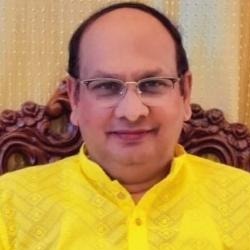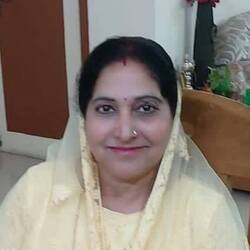Learning is a continuous process and a systemic approach towards acquiring and enriching knowledge. My curious mind keeps on stirring with questions; Is classroom teaching enough to obtain desired knowledge in terms of holistic development? Is the mandatory approach of confining towards classes being fruitful? In present scenario where virtual world has opened up the world for everybody, doesn’t it indicate to make classroom teaching more attractive supported by providing an open environment of learning? Whether curriculum need to be designed to cater the need of students where they are equipped to confront the real challenges of corporate and life?
With this own view, I present my few submissions by quoting few historical instances of ancient India. First; when Eklavya was deprived/ discriminated from education by Guru Dronacharya. Eklavya was determined to learn the skill of archery through formal training from Guru but could not due to societal constraints of that era. He himself practiced it with great determination and devotion and got perfection in art of archery. Second; Karna of Mahabharat times who was also denied to provide formal education of archery in the kingdom of Kurus and was discriminated. He was so determined to learn the skill of archery that he approached Lord Parashurama and urged him to take him under his supervision for training. Lord Parashurama had left the training pupils since long but after due thought he accepted Karna’s request. Karna became a great warrior and got expertise in the skill of archery. While Arjuna was imparted formal education, Eklavya and Karna were skilled at par or even better than Arjuna in the same art of archery.
The above mentioned historical details are implying importance of learning whether formal/ informal education. Therefore, learning has to be important in education system.
Acquiring knowledge is necessary whereas its most important aspect is its application in varied areas. Usefulness of knowledge lies in its application towards societal benefit and eventually nation building. Hence, I would like to mention few facts need to ponder for current challenges of education;
- As per AISHE, in 2018-19, the Gross Enrollment Ratio (GER) of India is 26.3.
- Approximately 60 percent of India’s population is below 35 years of age.
- Over 24 crore of our population is between 18 to 25 years of age group who can take up higher education.
- The total 3.7 crore students are enrolled in higher education institutions.
To the above facts, it clearly indicates that almost 20.3 crore of our population is deprived of or not motivated to pursue higher education.
Here, my intension is only to highlight the concerns of GER in India leading to strengthen the Government policies. Therefore, the education policy could be framed in a way to maximize the GER. The concerns of all people must be addressed in our education policy so that aspirants of higher education be maximized. And in my opinion, along with fundamentals of subjects being taught in four walls, beyond classroom skill development is the solution to increase GER.
Brain storming is required to discern the priorities of varied groups to provide formal education with employability in some or other forms.
Stay tuned….presenting with an analysis in this regard in next article…..
Dr. Arvind Singh
PATRONS
Dr. Arvind Singh
Usha Singh


